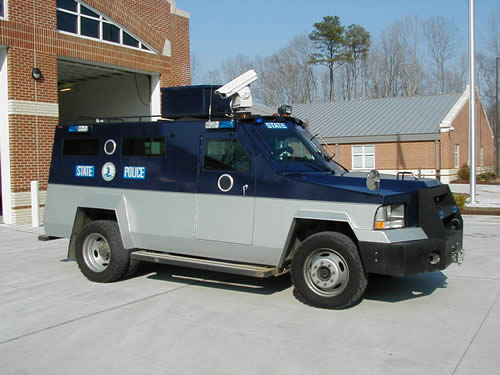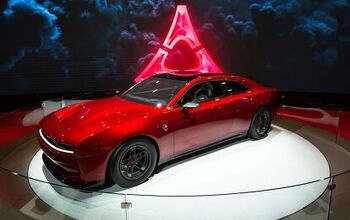Virginia State Police Help With Budget Crunch
A federally funded ticketing blitz in the state of Virginia landed a total of 6996 traffic tickets this weekend. The blitz, dubbed “Operation Air, Land & Speed” coincided with frantic efforts by state officials to close a$2.2 billion budget deficit. Supervisors ordered state troopers to saturate Interstates 81 and 95 to issue as many tickets as humanly possible over the space of two days.
Officers had no trouble delivering the requested number of speeding tickets with a total of 3536 ordinary speeding citations written. In addition, another 717 “reckless driving” tickets were filed, although these most often are simple speeding tickets that happen to carry a fine of up to $2500. Driving as little as 10 to 15 MPH over the limit can qualify for this enhanced punishment. On the other end of the scale, some 310 tickets were handed to drivers who either forgot to wear their seatbelts or made a choice not to do so.
Activists with the National Motorists Association pointed out that enforcement efforts may have concentrated on areas where speed limits are expected to rise to 70 MPH following Governor Bob McDonnell’s signature on legislation raising the state’s maximum speed limit ( view law). This would mean a significant number of tickets were issued for conduct that will be perfectly legal in a matter of months. The group also indicated that state police tactics may run afoul of state law.
“All officers making arrests incident to the enforcement of this title shall be paid fixed salaries for their services and shall have no interest in, nor be permitted by law to accept the benefit of, any fine or fee resulting from the arrest or conviction of an offender against any provision of this title,” Virginia Code Section 46.2-102 states.
Under the federal grant application process, state officials explained that they would pay officers overtime — at least one-and-a-half times their normal salary — to participate. This special reward for ticketing operation participants appears to violate the spirit of state law.
Since 2006, a total of twenty-three ticketing blitzes have taken place, generating 120,977 traffic tickets.
[courtesy: Thenewspaper.com]
More by The Newspaper
Latest Car Reviews
Read moreLatest Product Reviews
Read moreRecent Comments
- Formula m How many Hyundai and Kia’s do not have the original engine block it left the factory with 10yrs prior?
- 1995 SC I will say that year 29 has been a little spendy on my car (Motor Mounts, Injectors and a Supercharger Service since it had to come off for the injectors, ABS Pump and the tool to cycle the valves to bleed the system, Front Calipers, rear pinion seal, transmission service with a new pan that has a drain, a gaggle of capacitors to fix the ride control module and a replacement amplifier for the stereo. Still needs an exhaust manifold gasket. The front end got serviced in year 28. On the plus side blank cassettes are increasingly easy to find so I have a solid collection of 90 minute playlists.
- MaintenanceCosts My own experiences with, well, maintenance costs:Chevy Bolt, ownership from new to 4.5 years, ~$400*Toyota Highlander Hybrid, ownership from 3.5 to 8 years, ~$2400BMW 335i Convertible, ownership from 11.5 to 13 years, ~$1200Acura Legend, ownership from 20 to 29 years, ~$11,500***Includes a new 12V battery and a set of wiper blades. In fairness, bigger bills for coolant and tire replacement are coming in year 5.**Includes replacement of all rubber parts, rebuild of entire suspension and steering system, and conversion of car to OEM 16" wheel set, among other things
- Jeff Tesla should not be allowed to call its system Full Self-Driving. Very dangerous and misleading.
- Slavuta America, the evil totalitarian police state


































Comments
Join the conversation
As you may know, Virginia is the only state that bans the use and sale of radar detectors. There is no evidence that the radar detector ban increases highway safety. Our nation’s fatality rates have fallen consistently for almost two decades. Virginia’s fatality rate has also fallen, but not any more dramatically than it has nationwide. Research has even shown that radar detector owners have a lower accident rate than motorists who do not own a detector. Maintaining the ban is not in the best interest of Virginians or visitors to the state. I know and know of people that will not drive in Virginia due to this ban. Unjust enforcement practices are not unheard of, and radar detectors can keep safe motorists from being exploited by abusive speed traps. Likewise, the ban has a negative impact on Virginia’s business community. Electronic distributors lose business to neighboring states and Virginia misses out on valuable sales tax revenue. Radar detector bans do not work. Research and experience show that radar detector bans do not result in lower accident rates, improved speed-limit compliance or reduce auto insurance expenditures. • The Virginia radar detector ban is difficult and expensive to enforce. The Virginia ban diverts precious law enforcement resources from more important duties and this ban may be ILLEGAL. • Radar detectors are legal in the rest of the nation, in all 49 other states. In fact, the first state to test a radar detector ban, Connecticut, repealed the law – it ruled the law was ineffective and unfair. It is time for our Virginia to join the rest of the nation. • It has never been shown that radar detectors cause accidents or even encourage motorists to drive faster than they would otherwise. The Yankelovich – Clancy – Shulman Radar Detector Study conducted in 1987, showed that radar detector users drove an average of 34% further between accidents (233,933 miles versus 174,554 miles) than non radar detector users. The study also showed that they have much higher seat belt use compliance. If drivers with radar detectors have fewer accidents, it follows that they have reduced insurance costs – it is counterproductive to ban radar detectors. • In a similar study performed in Great Britain by MORI in 2001 the summary reports that "Users (of radar detectors) appear to travel 50% further between accidents than non-users. In this survey the users interviewed traveling on average 217,353 miles between accidents compared to 143,401 miles between accidents of those non-users randomly drawn from the general public." The MORI study also reported "Three quarters agree, perhaps unsurprisingly, that since purchasing a radar detector they have become more conscious about keeping to the speed limit..." and "Three in five detector users claim to have become a safer driver since purchasing a detector." • Modern radar detectors play a significant role in preventing accidents and laying the technology foundation for the Safety Warning System® (SWS). Radar detectors with SWS alert motorists to oncoming emergency vehicles, potential road hazards, and unusual traffic conditions. There are more than 10 million radar detectors with SWS in use nationwide. The federal government has earmarked $2.1 million for further study of the SWS over a three-year period of time. The U.S. Department of Transportation is administering grants to state and local governments to purchase the SWS system and study its effectiveness (for example, in the form of SWS transmitters for school buses and emergency vehicles). The drivers of Virginia deserve the right to the important safety benefits that SWS delivers. Please sign this petition and help to repeal this ban and give drivers in Virginia the freedom to know if they are under surveillance and to use their property legally: www.thepetitionsite.com/1/repeal-the-virginia-radar-detector-ban Tell Friends and Family about this.
I just learned to set the cruise at the speed limit and stick to the right lane. Now you ALL could appeal your cases to circuit court and that may cause a backup in the system. car insurance quotes